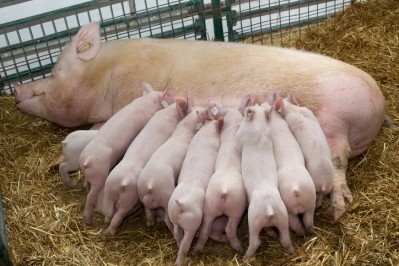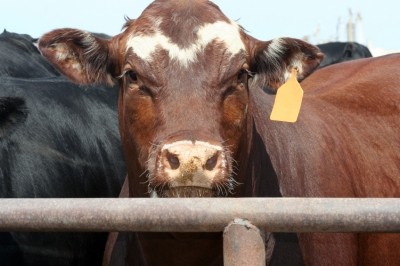Interview with Cargill's marketing and technology director Scott Ainslie
Cargill on maturing global markets, increasing regulation and the role of animal protein
FeedNavigator: What are some of the biggest challenges your customers are facing in 2014 and beyond?
Scott Ainslie: One of the biggest issues is this area of food—and more specifically protein—demand. How is the world going to feed, in a sustainable way, the 9 billion people who will populate the earth in 2050? We wake up every day thinking about what we can do to make better quality protein more available to people today and in the future. Globally, we’re working on how to make supply chain more efficient, effective and safer so this ballooning need is met. We just completed our 2020 strategy, which we’re calling ‘better nutrition for better lives.’
FN: How does Cargill respond to the argument that plant-based protein will have to play a more prominent role in people’s diets by 2050?
Ainslie: I think animal protein has always played a really important role in dietary needs of people. It supplies a lot of nutrients our bodies need. In many places, animals utilize resources that people wouldn’t use on their own. That said, I don’t see plant and animal as competitive with each other. I think it’s inevitable that we’ll have both. We’ve found that as GDP per capita goes up, meat consumption is highly correlated. Even in markets like India, not only has milk consumption gone up, but meat consumption is rising there too, which we found interesting. I don’t think we can feed 9 billion without both plants and animals playing a role.
FN: What are some of the other concerns of your retail and manufacturer customers looking ahead?
Ainslie: Individual consumer needs and preferences vary depending on where they are in the market. Some customers worry about certain issues more than others because they can afford to. And we will build around customers depending on their needs. As an example, sustainability is important to our larger customers as a driver for shareholders. We have projects linking up food all the way back to animal or milk production, and are putting together a significantly lower carbon footprint around that. To the extent that sustainability is important to some consumers, we’ve had great success stories where we’ve been able to customize the supply chain.
Another issue affecting our customers is there is more regulation around the world. The regulatory environment in US, Europe and elsewhere is becoming significantly stricter. We’re trying to help them work through those issues.
Volatility—just the amount of fluctuation in the commodity markets in general—is another big concern. For a lot of our customers, the cost of feed is a huge part of their total cost. We have a small margin on that, but cost of feeding their animals is a huge part. Given the volatility they’re experiencing on both ends, they increasingly feel a need to become better risk managers.
Animal welfare is an issue in markets like the US and Europe, but not so much elsewhere in the world.
FN: How is Cargill working to find alternatives to using antibiotics in animal feed, given certain customers’ concerns raised over the recent Zilmax controversy in the US and Asian markets?
Ainslie: Everything is a tradeoff. In the Zilmax case, the product had an impact on efficiency that was positive, but some data suggested under certain conditions it might weaken animals’ legs. Customers then had to find a way to provide a supply of animals that didn’t use that.
Specialty additives is a huge part of our research effort. We do a lot of biological modeling and offer decision-making tools. We’re also investing a fair amount in specialty additives, in some cases that can have an impact on gut health so antibiotic usage can go down, if that’s what the customer is looking for. Additives that can help an animal through a disease or to grow better and digest fiber better so methane output goes down.
I think the majority of antibiotics used in animals are in no way used in humans. That said, it’s still an important issue for consumers and one that will become increasingly important. If customers want to figure out ways they can continue to produce efficient, safe, healthy meat without antibiotics, we’ll help them do that.
FN: As markets in South America and Asia continue to mature, have you noticed a shift in who your customers are or what they’re looking for?
Ainslie: For us, what continues to shift is what our customers want from us. A small farmer in Vietnam with five pigs and 25 chickens will buy a complete diet from us, and we will have a specialist there helping them with practical ways to keep animal more healthy. They don’t have the capability to manage a lot of complexity; they’re dealing with problems like cash flow. In contrast, our big customer in Brazil are worried about exchange rates.
As markets mature, customers become larger and more sophisticated; often times, they start producing their own feed. Then they’re looking to us more as a consultant to help them with software, or they’re looking for specialty ingredients, access to R&D and risk management tools. We can do all those; it just depends on the market and how big customers are in those markets.
















